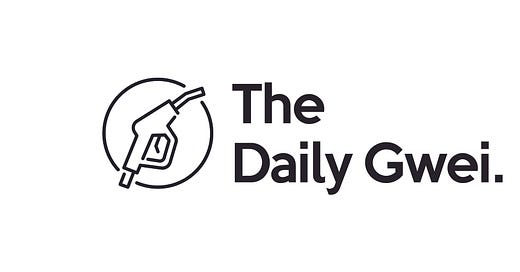I wasn’t old enough to be involved or pay attention to the early days of the internet but from what I hear from those who were, the parallels to crypto are quite insane. From what I have understood by listening to those who watched the internet grow, there was a period of time where the internet wasn’t a very open place and large corporate companies such as AOL offered customers a curated and walled garden network instead of an open internet (though something like Compuserv allowed users to connect to the open internet as well).

Of course, as time went on, the open internet crushed the walled gardens because it was open, permissionless, decentralized, credibly neutral and managed to attract & retain the largest concentration of genuine builders. Obviously we can draw a parallel here between the internet and Ethereum and also draw parallels between some other layer 1 networks and the walled gardens of the early internet. But we can also say that Ethereum has similarities to the early internet in that layer 1 is slow and expensive right now but has exponential improvements live with more coming soon (layer 2, sharding, statelessness etc). You can maybe even think of rollups as Ethereum’s “broadband moment” though I’d argue rollups have the potential to scale Ethereum so greatly that analogizing them to fiber internet probably makes more sense.
This is all a major reason why I’m placing such a big bet on Ethereum’s layer 2 ecosystem - I understand that new technologies start out as expensive and then get cheaper to use over time (but only when there’s actual demand for the tech). The best part is that layer 2’s are not a pipe dream or something that is coming in the distant future - they are live today, already out-scale the most scalable layer 1’s and are improving at a rapid pace. On top of this, we get to keep Ethereum’s layer 1 maximally decentralized and secure so that it can act as a credibly neutral base layer for these layer 2’s to build on top of.
One other major area where blockchains differ to something like the internet is that they have a native monetary unit for people to speculate on. Could you imagine the holy wars that would’ve played out if TCP/IP (aka the internet) had a native token and was competing with AOL and others on that front too? Though I think having a monetary unit is what makes blockchains so interesting and what allows us to keep them truly decentralized (when done correctly). Of course, there are plenty of money-grab blockchains in crypto that exist today and many that have come-and-gone - almost all of them will be distant memories by the time we achieve global adoption of this technology.
Whatever your view on what the next 10 years of crypto/web3 adoption is going to look like, I think we can all agree that it’s going to be a very wild ride. There is trillions of dollars at stake, fame & fortune for the builders who create amazing products/services, a massive opportunity to disrupt pretty much every single industry on the planet and, most importantly, an opportunity to actually build the decentralized internet that we all very much deserve.
Have a great day everyone,
Anthony Sassano
Enjoyed today’s piece? I send out a fresh one every week day - be sure to subscribe to receive it in your inbox!
Join the Daily Gwei Ecosystem
All information presented above is for educational purposes only and should not be taken as investment advice.





Fire article! 🔥
Fire article! 🔥